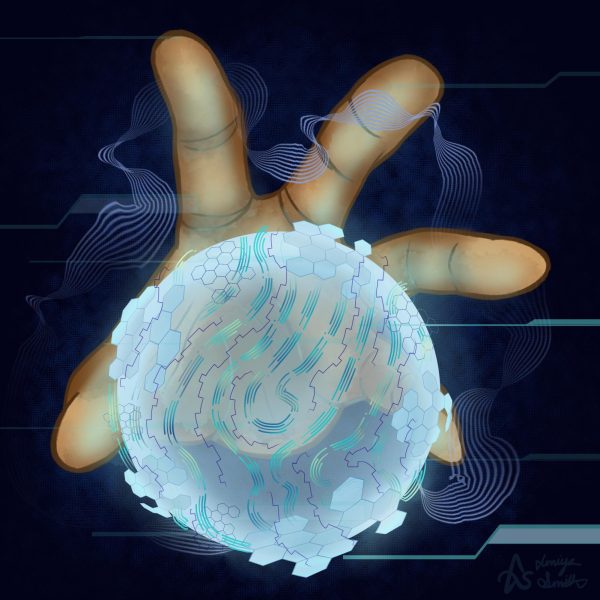How I decided on nursing:
Is it for you?
Around my second semester of dual enrollment at CSU, I began to question my major. At the time, I was an undeclared English major and planned on pursuing professorship, but after taking classes and working for the college newspaper (The Saber), I realized that I enjoyed writing and editing as a hobby, not a full-time job. Well, bummer, right? But fortunately, I had kept a few alternative career choices in the back of mind.
Nursing wasn’t my first backup. In fact, early on, it was the farthest option from my mind. With the majority of females in my family in nursing or studying for it, I outright refused to become a part of the trend. I wanted to be the “special butterfly” in my family, so I decided to go for something different: I declared my major as biology in the hopes of becoming a doctor. But a few months of thought and hours of research later, I changed the career plan to physician’s assistant (PA). Then I tweaked my major to psychology, but still with the goal of becoming a PA ahead of me. But even after that, I had my doubts still…
By the summer after my year of dual enrollment (and before my first year of college outside of high school), I started volunteering in the intensive care unit (ICU) of Piedmont Columbus Regional. Because of networking connections through my mom, I became one of the few volunteers in the ICU since six years prior, when the hospital cut off access to all volunteers except for those with parents working in the department. Their reason? Several student volunteers had been traumatized by the frequent codes for patient mortality, the severe and gruesome injuries, and the overall melancholy air that presides over the incapacitation or even death of someone’s loved one. But in spite of those factors, I found in the ICU a beauty that existed nowhere else.
That summer, I volunteered Tuesdays, Thursdays, and Saturdays from seven AM until three PM. I enjoyed the early routine because it pushed me to develop a worklike mindset during what could’ve been a temptingly lazy summer and because it afforded me opportune parking (which was easily taken by eight or nine AM). However, my schedule did eventually instigate my coffee drinking habits (back when I could ingest caffeine, that is), and because I had requested eight-hour shifts to fully immerse myself in the hospital environment, I was exhausted by the end of each day. But what I learned–and better yet, what I felt–during those shifts was invaluable and has guided my aspirations since.
Throughout most of my hours of volunteering, I observed the ICU staff. Although I vigorously cleaned almost every surface on both floors (desks, tables, refrigerators, hand sanitizer stations–you name it), assisted in repositioning patients with foam wedges, delivered medications and restocked patients’ supplies (IV flushes especially were in high demand), mixed medications, flushed IV lines, and carried out a medley of other small tasks that I practically begged the nurses for, the rules for volunteering restricted me in my activities. So, I found solace in watching the staff.
I observed physicians, respiratory therapists, technicians, and nurses alike, but I was especially drawn to the nurses. Not only were they more receptive to giving me assignments and teaching me, but their work was also more patient-centered. While both nurses and physicians must balance paperwork (charting) with patient interactions, I noticed early on that the nurses seemed to operate more on quality of care than quantity of care. With doctors, each employee must tend to about 20 patients a day, and on top of that, many also mentor medical students. This limits their time with each patient, which often causes the patients and their families to feel that the doctor lacks compassion or sympathy. On the other hand, the number of patients each nurse (in the ICU at least) usually cares for ranges from one to four, depending on whether the department is short-staffed or not. Even with student mentorship thrown in, this means that nurses are better able to administer consistent, focused care for each patient and to even build a level of camaraderie with the person and his or her family members. And this is considerably important to someone confined to the hospital.
Imagine being in the hospital as a patient or the loved one of a patient–or perhaps you’ve already been there. Wouldn’t you feel neglected, even disrespected, if the physician came in, barely glanced you or your loved one over, and left? Or maybe he or she gave a diagnosis or explanation but was curt and disinterested. Would that make the situation feel better? Of course not! In fact, I once overheard a patient’s family member confiding to her nurse, “It doesn’t even feel like he cares,” after the physician had briefly inspected the patient and then left for the next one. Granted, again, doctors have undoubtedly busy schedules, but in healthcare, we must keep in mind that even short interactions with our patients should be compassionate and even therapeutic. Hospitals are dreaded for a reason; they remind all of us of the frailty of our bodies and how not a single moment more than the present is fully guaranteed. So, it is for that reason, nurses are apt to serve as counselors as well as caretakers.
It is a truly rewarding, albeit also taxing, experience to share others’ moments of joy, relief, heartache, anguish, and gratitude. The full spectrum of human emotions and feelings is on display at all times, but the beauty that I mentioned before is not necessarily in this but rather in how nurses respond to it. What attracted me the most to nursing–and what brought an end to my deliberation on medicine–was the idea of fulfilling not only patients’ physical needs but their emotional ones too, the thought of consoling them (or even simply acknowledging their pain) during their worst times and celebrating with them during their best times. At the end of the day, even if you cannot solve someone’s problems, you can do the next best thing: treat them as human beings who deserve your sympathy and time. No, not all patients will express appreciation for this, but for those who do, to them, you will always be a reminder of the kindness that often seems absent in humanity, and to me, that is a truly special honor in life.
Though volunteering was certainly fascinating and informative–from gunshot wounds (GSW’s), traumatic brain injuries (TBI’s), basal skull fractures, diabetic ketoacidosis, elephantiasis, seizures, strokes, and splenic abscesses, to tracheostomies with bronchoscopies, intubations, Foley catheter insertions, chest port cleanings, and CAT scans, to balloon pumps and Arctic Sun machines–the aspect that proved most influential was observing, and even sometimes partaking in, the direct impact on patients’ quality of life. No matter how minute the improvements may seem, if you can bring even a solitary ray of light to that patient’s day, you have made that person’s life all the better. Some of the most indescribably important moments in life are having someone provide comfort or encouragement when you lack it–having that person make you feel that you matter when you yourself find that hard to believe. As a nurse, you have that privilege. Sure, you may be saddled with charting work and barely have time to sit or even eat on some days, but you are constantly affecting those around you, and with each interaction, there exists the opportunity to inspirit those who have lost all hope and desire. You are not only tending to people’s bodies; you are tending to their very hearts and souls. You are tending to the things that make us most human. And with that in mind, you have the chance to engrave a lasting impression in those people’s minds and to motivate them even beyond the hospital walls. And that is something unique to healthcare as a whole, but especially nursing.
After my volunteering experience, I changed my major to nursing, added on a psychology minor, and finally felt confident in my career decision. I now plan to become a psychiatric mental health nurse practitioner–a position that combines both my passion for patient-centered care and my longing for leadership–and even with my logical and experiential reasons, being in nursing simply feels right. I once heard that if you can imagine yourself in the position and feel suited for it, then you’ve found the right one, and that’s a very true statement, though it is largely based on knowledge and exposure.
So, if you are still questioning nursing, I urge you to research it more, or better yet, to volunteer or shadow! There is nothing better than firsthand experience. And even if you still experience moments of doubt, a quote that I picked up from one of the ICU nurses could be just what you need to hear: “Nothing will be perfect, but if you find something that is 65% things that sit well with you, then you’ve found the right place.”
I wish you all well with your journeys in nursing! And as before,
Nursing students unite!








